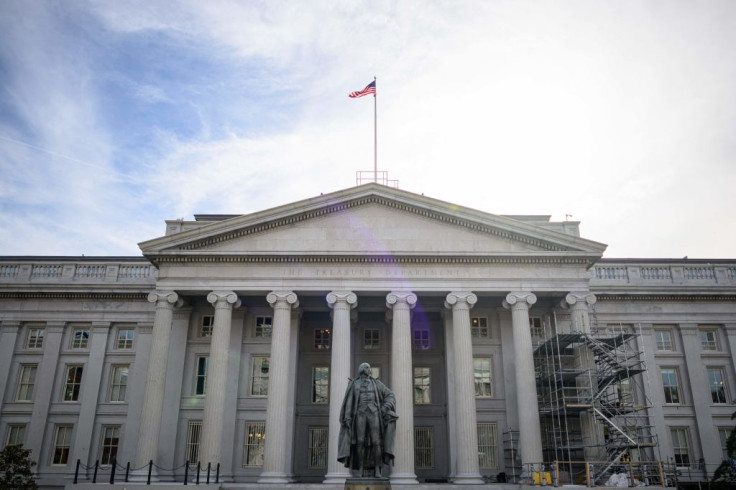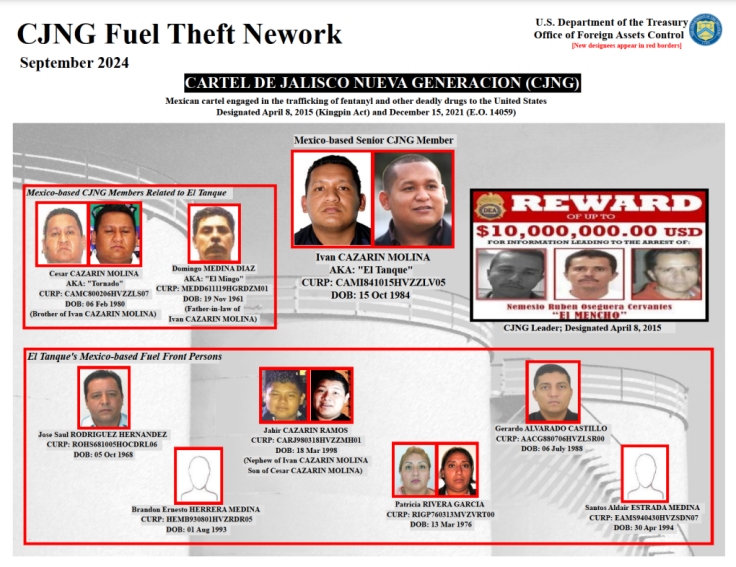
SEATTLE - The Department of the Treasury's Office of Foreign Assets Control (OFAC) announced sanctions for nine Mexican nationals and 26 entities linked to a fuel theft network that generates millions of dollars for the Cartel Jalisco Nueva Generación (CJNG).
Fuel theft, colloquially referred to in Mexico as "huachicol" is the most significant non-drug revenue source for criminal organizations in Mexico.
For years, fuel theft has been a major problem for Mexico's government and state-owned petroleum company Pemex. As organized criminal groups illegally tap pipelines, hijack trucks or steal directly from refineries, this illicit activity has costed Mexico billions of dollars over the years.
Among those included in the sanctions is a man known as "El Tanque." Ivan Cazarin Molina (a.k.a. "El Tanque"—meaning the storage tank) is a senior member of the CJNG, and is part of the inner circle of trusted associates of Ruben Oseguera Cervantes, also known as "El Mencho," leader of the criminal organization.
Molina has been involved in fuel theft primarily in the Mexican states of Jalisco and Veracruz. According to the OFAC's statement, 'El Tanque' steals fuel through illicit taps of Pemex pipelines and stores it near the city of Veracruz in storage tanks capable of holding millions of liters.
He then manages a network of legitimate retail gas stations where he sells stolen fuel. Molina also sells the fuel to third parties in Mexico who in turn sell it in the U.S., often in Texas.
According to the U.S. Treasury, "El Tanque" answers directly to "El Mencho." The U.S. government offers a $10 million reward for information leading to the leader's arrest.
Besides targeting 'El Tanque,' the U.S. Treasury extended sanctions for his closed allies too. Molina's brother, known as "Tornado" as well as Molina's father-in-law, dubbed as "El Mingo" were among those linked to the fuel theft network.

The sanctions imposed by the OFAC freeze any assets the individuals or companies have in the U.S. and prohibit U.S. citizens from doing any business with them.
"Like El Tanque, Tornado was a founding member of CJNG and is close friends with El Mencho," the Treasury Department said in a statement. "Involved in homicide and recognized as a member of the armed wing of CJNG, Tornado was arrested in 2013 but remains involved in CJNG activities in Veracruz from within prison."
Over the past two years, the U.S. Treasury has sanctioned more than 300 targets for involvement in drug trafficking activities at all stages of the supply chain, from major cartel leaders to chemical and fuel suppliers.
Last year, the Counter-Fentanyl Strike Force was launched by Treasury Secretary Janet Yellen. Working alongside the Office of Terrorism and Financial Intelligence as well as the IRS Criminal Investigation, the Strike Force has increased the financial impact of steps taken to disrupt illicit fentanyl trade.
© 2024 Latin Times. All rights reserved. Do not reproduce without permission.











